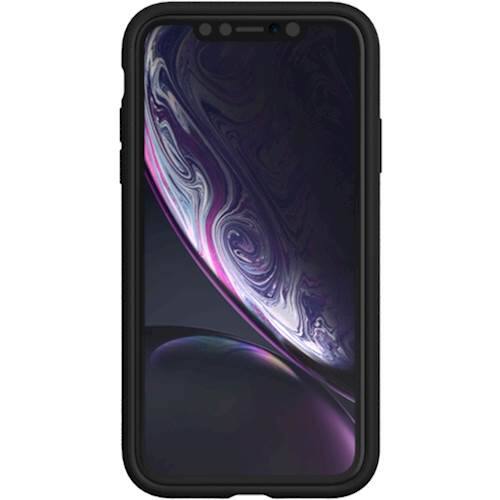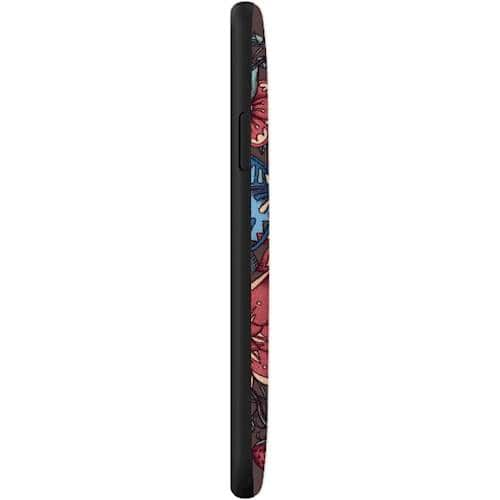





 |
 |
 |
 |
 |

strongfit designers tough case for apple iphone xr - circle of friends in color
SKU: EN-A10103






strongfit designers tough case for apple iphone xr - circle of friends in color
John Markoff, formerly of the New York Times, (left) interviews former Apple engineers who worked on the first iPhone. From left, Hugo Fiennes, Nitin Ganatra and Scott Herz. "The hardware team knew [the screen] was multitouch," Hugo Fiennes, a former Apple engineer, said during a panel Tuesday at the Computer History Museum in Mountain View. "But the first time I saw pinch-to-zoom was at the keynote" where then CEO Steve Jobs introduced the iPhone. Former New York Times reporter John Markoff moderated the chat with Fiennes and fellow former Apple engineers Nitin Ganatra and Scott Herz. Scott Forstall, Apple's former head of software, is slated to talk later Tuesday.
Markoff asked the group what they told their friends when asked about what they were working on, Herz laughed and said, "Friends?"Ganatra added that Apple's secrecy was "an impediment" to the team working together, but he added that it was necessary because "there was so much value there."Does the Mac still matter? Apple execs tell why the MacBook Pro was over four years in the making, and why we should care, Tech Enabled: CNET chronicles tech's role in providing new kinds of accessibility, Former Apple engineers Hugo Fiennes, Nitin Ganatra and Scott Herz talk about the development of the iPhone strongfit designers tough case for apple iphone xr - circle of friends in color a decade after its release..
How secretive was Apple about the first iPhone? Engineers working on the project didn't even know what it really could do. When building the first iPhone leading up to its release in 2007, Apple put together a group of engineers and designers tasked with working on the top-secret project. Hardware engineers didn't even know what the software could do, and vice versa. Be respectful, keep it civil and stay on topic. We delete comments that violate our policy, which we encourage you to read. Discussion threads can be closed at any time at our discretion.
There's a battle over the value of the components within your iPhone, "Qualcomm's illegal business practices are harming Apple and the entire industry," Apple said in a statement, It's the latest strongfit designers tough case for apple iphone xr - circle of friends in color salvo in an escalating legal fight over the the value of intellectual property that plays a critical role in the iPhone, Apple argues that it should have to pay royalties only on the technology behind the radio chip Qualcomm supplies in the iPhone, Qualcomm says the royalties cover a far broader range of technologies that go beyond a single chip..
"We believe deeply in the value of intellectual property, but we shouldn't have to pay them for technology breakthroughs they have nothing to do with," Apple said. In response to the filing, Qualcomm said it's confident it will prevail in the legal dispute. "Qualcomm's innovations are at the heart of every iPhone and enable the most important uses and features of those devices," said Don Rosenberg, executive vice president and general counsel of Qualcomm, citing connectivity, high-speed data transmission and GPS navigation as examples. "It simply is untrue that Qualcomm is seeking to collect royalties for Apple innovations that have nothing to do with Qualcomm's technology."Qualcomm is the world's biggest provider of mobile chips, and it created some of the essential standards for connecting phones to cellular networks. The company derives a significant portion of its revenue from licensing that technology to hundreds of handset manufacturers and others. Because Qualcomm owns IP related to 3G and 4G phones, any handset maker building a device that connects to the newer networks has to pay it a licensing fee, even if they don't use Qualcomm's chips.
- buy iphone xs max cases online - clear case
- iphone 8 screen protectors and cases
- iphone case off white
- iphone screen protector you can hit with a hammer
- evutec aergo ballistic nylon iphone x tough case & vent mount - blue
- iphone xs max brilliance - rose gold
- crystal shell case for apple iphone 7 - dark crystal
- rose gold baby girl shoes, flower girl, baby shoes, wedding shoes, toddler shoes, baby moccasins, birthday ballet shoes, holiday
- ballet shoes earrings - perfect gift idea for the dancer! - christmas gift idea, stocking stuffer, dance recital gift idea
- blonde boys ballet positions cute digital clipart, ballerina clip art, ballet graphics, ballet positions, instant download, ball
- blue ballerina shoes high quality leather handmade, blue shoes, blue flats, ballet flats, bridal shoes, women shoes, party shoes
- More...



